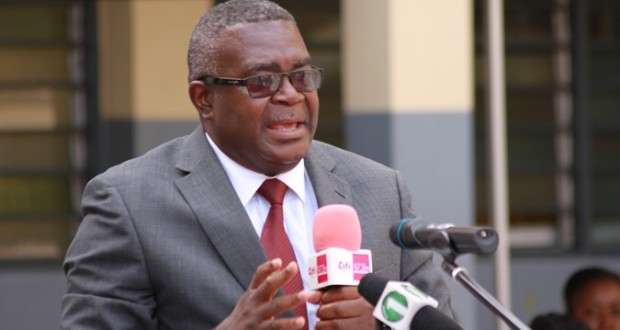Privatization of basic schools ‘a no go area’ – Aheto Tsegah
A former Acting Director General of the Ghana Education Service (GES), Charles Aheto Tsegah wants government to rescind its decision of handing over the management of Ghana’s public schools to a private entity to manage through the Ghana Partnership Schools (GPS) initiative.
According to him, the plan when implemented will expose how government has robbed the educational sector over the years by depriving basic schools the needed funds for their development.
“What are you introducing the private sector to do? It is a question of managing the administrative systems or what different thing are they bringing in. I do not see anything different in this whole arrangement. But if they (government) go ahead, then they are suggesting to us that they have all the years had money except that they intentionally deprived the system of those resources so that they can have a reason to hand it over to some private administrators or interested group to run the system rather than taking advantage of all the capacities that exist in this country,” he said.
Even before the approval of the GPS initiative, some teacher unions have kicked against the new government policy which seeks to privatize the management of some basic schools in the country on a pilot basis.
Mr. Tsegah who is the latest to back the concerns of the teachers says government should not go ahead with the plan but rather focus on systematic ways to address the challenges facing public basic schools in the country.
“I will tell the government that this is a no go area. Government should now sit down and look dispassionately at the whole challenge of managing public schools. If government is willing to accept things rarely, then I believe there is not going to be any problem. If you have said the public schools are free because of you are going to pay capitation grant and you do not bring capitation grant over a year or two, I wonder how you expect the teachers to run the schools.”
“It is very unfair for government to try and create the impression that there are challenges and problems with the system when government is the real culprit in this matter”, he said on Eyewitness News on Thursday.
We’ll resist privatization of basic public education – Teacher Unions to gov’t
The Teacher Unions including the Teachers & Educational Workers Union of Ghana (TEWU), the Coalition of Concerned Teachers (CCT-GH), the National Association of Graduate Teachers, NAGRAT, and the Ghana National Association of Teachers (GNAT) have cautioned government against the implementation of the Ghana Partnership Schools programme.
General Secretary of GNAT, David Ofori Acheampong, explained that the move is aimed at commercializing and eventually privatizing public education in Ghana, thus their call for it to be aborted.
“The project is purported to last for three years after which it may be institutionalized permanently. The unions find the Ghana partnership project as a subtle and eventual privatization, commercialization and commodification of public education in Ghana. We are amazed that the government is trumpeting the implementation of the project. In all these endeavors, the major stakeholders, GNAT, NAGRAT, TEWU and CCT-GH have not been involved in the two-year planning process of the project. We find this unfortunate and unacceptable.”
We’ll roll out GPS policy despite teacher unions protest – Education Ministry
Despite these agitations, the Ministry of Education has called the bluff of some teacher unions in the country who say they will kick against the implementation of the Ghana Partnership Schools (GPS).
According to the ministry, it will go ahead to roll out the policy to improve the standards of education in the country.
Public Relations Officer of the Education Ministry, Vincent Ekow Assafuah said the partnership which will also benefit the teachers will take off to enhance teaching and learning.
“It is the Ghana Education Service that is the policy implementer. What we are doing is that, we are allowing the World Bank to fund about 7,000 of the schools and by so doing they are going to provide learning grants to them and train teachers. The GPS is just for 50 schools the country and they are going to help these schools to improve learning outcomes; and that is what we are doing.
–
Source: citinewsroom


